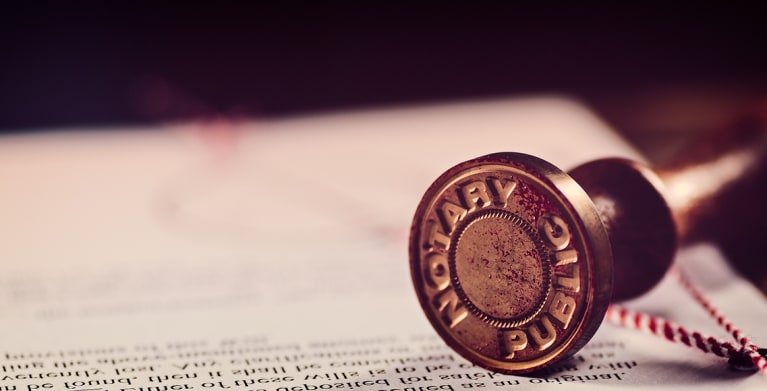Debunking Notarial Work: Streamlining the Function and Value of Notaries
Their duty, typically shrouded in enigma for lots of, lugs substantial weight in making sure the credibility and stability of critical files. By deciphering the intricacies dropping and surrounding notarial practices light on the importance of their acts, a more clear understanding arises of the crucial duty notaries play in maintaining the fabric of legal and legal contracts.
The Background of Notarial Work
How did notarial job develop gradually to become an indispensable component of legal and organization transactions? The background of notarial job days back to ancient people, where scribes played a vital duty in tape-recording essential information and validating files. As cultures proceeded, the need for a much more formalized system to make certain the legitimacy of agreements emerged. This led to the growth of notaries, individuals assigned by the state to serve as unbiased witnesses in lawful matters.
During the Center Ages, notaries obtained importance in Europe, with their features expanding to include drafting lawful files, certifying trademarks, and preserving records. The rise of global profession additionally stressed the value of notarial work in confirming agreements and agreements throughout borders.
In the modern-day era, notaries remain to play an important function in lawful and service deals by validating identities, validating the authenticity of documents, and avoiding fraudulence. Their duty in accrediting the legitimacy of agreements adds a layer of security and count on to the ever-evolving landscape of commerce and law.

Responsibilities and Obligations of Notaries
Notaries play a vital role in confirming the authenticity of documents and the identification of signatories. One of their main obligations is to witness the finalizing of important records, such as contracts, wills, and actions, to ensure that all parties are entering into agreements knowingly and willingly.
They accredit copies of original documents, providing assurance to institutions that the duplicates are true replicas of the originals. On the whole, the responsibilities and duties of notaries are vital in protecting the integrity and validity of different records and transactions - Notary.
Notarial Certificates and Signatures
Exhibiting precise attention to information, notarial certifications and signatures work as important parts in validating the credibility of legal records. Notarial certifications typically consist of crucial info such as the date of notarization, the names of the signatories, a description of the record, and the notary's official seal. These certificates give a clear document of the notarial act, guaranteeing that the paper can be conveniently determined and traced back to the notary that looked after the procedure.
Trademarks play a critical duty in notarial work, as they symbolize the arrangement and authorization of the events included. Notaries thoroughly witness the signing of files to validate the identification of the signatories and confirm that they are authorizing of their very own free choice. By fastening their main seal and trademark to the file, notaries license that the needed procedures have been followed and that the paper is enforceable and legitimate.
In significance, notarial certifications and signatures are the trademark of credibility in legal transactions, providing assurance to all celebrations included that the files are legitimate and binding.
Significance of Notarial Acts

Notarization Refine Explained
Explaining the registration procedure supplies quality on the necessary actions associated with verifying lawful documents. The registration process typically starts with the specific providing the paper to a notary public. The notary after that verifies the endorser's identification via acceptable identification methods. When the identification is confirmed, the notary ensures that the individual signing the record does so voluntarily and with no coercion.

Final Thought

Notarial certifications normally contain essential info such as the day of registration, the names of the notaries, a summary of the record, and the notary's main seal. These certifications offer a clear record of the notarial act, making sure that the file can be quickly recognized and mapped back to the notary who supervised the process.
By attaching their main seal and trademark to the record, notaries certify that the needed procedures have actually been adhered to and that the see post paper is legitimate and enforceable.
By validating the identity of the signatures, confirming their willingness to get in into the contract, and licensing the date and area of the finalizing, notaries play a critical function in promoting the credibility of lawful files.After the document is signed, the notary will affix their main seal or stamp onto the document.